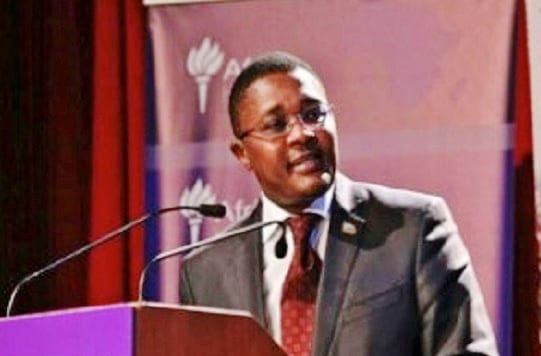Jordan, the Biblical Land of Refuge in the Middle East, is the only location in the Holy Land that links the lives of Abraham, Jacob, Lot, Moses, Elijah, Ruth, John, Jesus, Mary and Joseph, to name a few from the scriptures.
In continuing all efforts to put the destination right at the heart of tourism, the Hashemite Kingdom goes full force promoting itself as the center for religious tourism in the Middle East. Jordan is a country blessed by the presence of three monotheistic faiths – Islam, Christianity and Judaism
eTN sat down with Akel el Beltaji, Tourism Committee chairman, Upper House of Parliament for the Hashemite Kingdom of Jordan, to find out how his peace through tourism initiatives have segued into what appears to be a promising faith-based tourism for Jordan.
eTN: How do you plan to increase inbound tourism through faith and peace?
Akel el Beltaji: We are basically dedicated to travel / tourism worldwide. When it comes to my region where there is conflict, I see so many things in common. I see how we can reconcile. It is my duty to enhance these commonalities and make them solid that they sustain the difficulties and differences through this tribulation. People, despite the differences, can accept one another. Once you have built and enhanced that commonality – the issue between Palestine and Israel which has brought conflict across the Middle East – among people. To put out the fires of conflict, we need to go back to the roots, to Abraham, to the three monotheistic religions, to the novelty, to the morals of old stories, the New Testament, the Quran, to ancient history to understand each other. Hence, peace through tourism has been so effective lately, because with faith in our part of the world, people are driven by strong values-not that they go endangering themselves. When they try looking for answers, they find out the differences are small. And this whole business of conflict should not have been there in the first place.
When you rally for faith tourism, which now forms the basis of most people’s lives (as people are now going back to faith while they are disturbed and distressed), nations support the idea. Travelling to a religious destination is very comforting to tourists these days. Christians go to the Moses site and Jesus sites; the Muslims go to Mecca for pilgrimage. Faith is very important to our lives; we can just it convert then to tourism and eventually peace in the region.
eTN: Doesn’t religion often fuel conflicts among people and believers? So how do you think faith-based business can move nations in the Middle East to follow the peace map?
Beltaji: That is precisely the problem of certain segments of societies of different faiths. Is this conflict for God or with God? This rift between the monotheistic religions will have to be taken back to the commonality aspect and you realize ‘Why are they fighting?’ You will see that the piety of religion was hijacked to a prophecy that in some hideous way, may have brought it to the world of politics. From piety, to prophecy to politics in that order! Once you politicize faith, it gets messy. Look at Bin Laden and his network, Milosovich and his massacres and Goldman walking into a mosque. These people have politicized and have gone into a movement on their own making themselves the outlaws of religion who have taken religion’s interpretation of their own.
A lot of people do not know that Muslims or Islam believe that it will be Jesus who’d be ruling the world in the last 40 years before Judgement Day and He will take everybody to face God. Muslims believe that Jesus is going to be the Savior – which should make people find a way to diffuse this friction. By the fact that we are established in knowing about one another through tourism and travel, we will see that religion will come out of this ditch in politics and back to piety. Piety gives comfort enough by reaching out to God and the faith-based tours.
eTN: How do you think your efforts such as peace through tourism could enhance people’s understanding of each other and minimize the incidence of terrorism and other violent events?
Beltaji: Let me use this analogy and ‘call it blessing in disguise’ for this sole purpose. After 9-11, a lot of people in the US have begun reading about Islam. You must realize these people who have carried out the bombings are not moderate Muslims. They are pure outlaws. But Islam does not allow this, no matter if they call it Jihad. It’s not a holy war. Their misinterpretation is what made them terrorists. To what extent have we succeeded? Today we see developments in the peace efforts. The Balkans is at peace with itself now. We want to go into Darfur and cultivate peace. We want to go into south of Sudan and do that.
About 9-11, not a lot of you may have felt what we have over there. But when we had been attacked by suicide bombers on the night of February 2005, killing 67 men, women and children out celebrating a wedding, the following day we had the entire population demonstrating in the streets, carrying the banners saying No to Terror. Immediately, we felt what the Americans felt right after 9-11 and we were able to relate.
eTN: So what are you doing now towards bringing people to find peace through tourism?
Beltaji: The more people you bring together to Petra (some 56 nationalities visit the site), or Jerash, or float on the Dead Sea, or walk the Abraham path, they were appreciate and be aware of the goodness in people. And this will eventually help solve problems.
eTN: Have our credit problems in the US affected your numbers?
Beltaji: No. There have been no cancellations so far for 2009. I think people will soon see the economy return to normal. Tourists who go to Jordan are faith-determined, they will always go to Jordan. Those who want to take a cruise or leisure trip can put it off for later. But those who want to walk the steps of Jesus, or go to where Moses stood, or go to the Baptism site of Jesus, or see what the Graeco-Roman empires have left behind in Jordan, these people would still like to go to Jordan.
eTN: With our new President-elect Obama in the White House, do you expect tourism to spike in the faith-based arena, peace through tourism or in general tourism terms?
Beltaji: America has lost many friends. The world needs America and vice versa. There are a lot of countries who have a wrong perception of America, just like it has wrong perception of others. Travel is a way for clearing misconceptions. The US has not listened lately to its friends around the world. It will be a hard job for the next president to change this reality – the love and respect from the rest of the world. He has to work very hard!






















